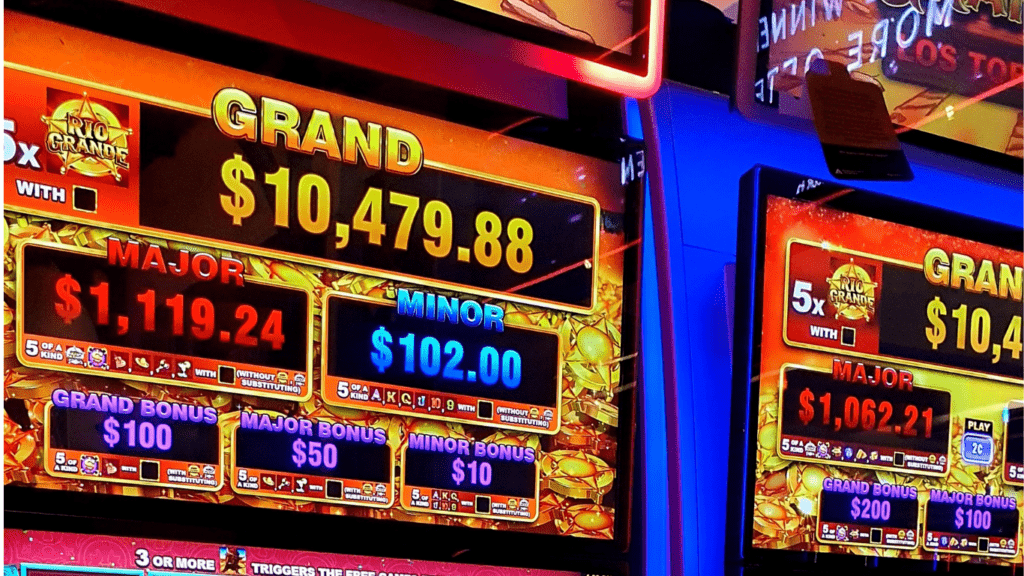Understanding Slot Machine Basics
Mastering slot machines requires grasping a few essential concepts. Understanding these basics helps make informed decisions.
The Role of RNG in Slot Outcomes
Random Number Generators (RNG) control slot machine outcomes. This software ensures every spin produces random results. The RNG continuously generates numbers, even when no one is playing.
When the spin button is pressed, the machine picks a random number from the generator. This determines the outcome, making it impossible to predict. Knowing RNG governs results emphasizes the importance of luck in slots.
Paylines and Betting Options
Paylines are the lines where matching symbols must land for a win. Some slot machines have fixed paylines, while others let players choose the number of active lines.
More active paylines increase chances of winning but raise the bet amount. Understanding betting options includes knowing the minimum and maximum bets.
Choosing a bet size affects how long a bankroll lasts. Managing bet sizes wisely helps extend playtime and increases enjoyment.
Setting Up Your Bankroll for Slot Play
Proper bankroll setup is key to maximizing your slot machine gaming experience. Dividing your funds strategically ensures longer play and greater enjoyment.
Calculating Your Initial Bankroll
Initial bankroll calculation depends on your disposable income and gaming goals. Calculate a monthly gaming budget, then allocate a portion specifically for slot machines. If your monthly budget’s $400, setting aside $100 for slots is reasonable.
- Assess Disposable Income: Determine an amount that doesn’t impact essential expenses.
- Set Monthly Allocation: Designate a fraction, such as 25%, of disposable income for slots.
- Adjust Based on Risk: Lower initial amounts for conservative play or increase for a higher-risk strategy.
How Long Should Your Slot Session Last?
Session duration affects bankroll longevity. Plan sessions based on bankroll size and desired playtime frequency. If you aim for weekly sessions with a $100 bankroll, $25 per session across four weeks works well.
- Session Planning: Divide the total bankroll by the number of sessions per month.
- Time Management: Stick to planned session times, like 1 hour each, to prevent overspending.
- Monitor Bankroll Depletion: Halt play if a set loss limit per session, such as $25, is reached.
Structuring your bankroll effectively supports sustainable slot play and enhances overall gaming experience.
Smart Betting Strategies for Slot Machines
Implementing smart betting strategies maximizes your slot machine gaming experience. Knowing how to manage your bets ensures longer gameplay and better control over your bankroll.
Choosing the Right Denomination
Choosing the right denomination impacts your bankroll’s longevity. Higher-denomination slots typically have better payout percentages but come with increased risk.
For beginners or those with smaller bankrolls, lower-denomination slots like penny or nickel slots offer more extended playtime and lower financial stress.
On the other hand, seasoned players with larger bankrolls might opt for higher denominations like dollar slots to take advantage of the higher RTP (Return to Player) rates.
When to Bet Max and When Not To

Betting max is often tempting due to the possibility of hitting large jackpots. However, it’s not always the best choice.
Bet max when playing progressive slots as these often require maximum bets to qualify for progressive jackpots.
For non-progressive slots, consider your bankroll size and session duration.
If you have a limited bankroll, medium or lower bets extend your playtime and lower the risk of rapid depletion. Bet max if the slot’s pay structure justifies it and you have a sufficient bankroll for sustained betting.
Recognizing and Utilizing Bonuses
Utilizing slot bonuses effectively enhances your bankroll and extends gameplay. Recognizing different types of bonuses makes a significant impact on your overall slot experience.
Types of Slot Bonuses
Slot bonuses come in various forms, each designed to attract and retain players. Understanding these bonuses helps you make the most of your bankroll.
- Welcome Bonuses: Casinos offer these to new players as a match on their initial deposits. For instance, a 100% match bonus on a $100 deposit gives an additional $100 to play with.
- Free Spins: Some slots provide free spins as part of a bonus, allowing you to spin the reels several times without using your funds. For example, you might receive 50 free spins on a specific slot game.
- No Deposit Bonuses: Casinos provide these without requiring a deposit, giving you a chance to win real money without risking your bankroll. These are often smaller amounts, such as $10 or $20.
- Loyalty Programs: Players earn points based on their gameplay, which can be redeemed for cash bonuses, free spins, or other rewards. High rollers may receive VIP bonuses, including higher deposit matches or exclusive offers.
Bonus Terms and How They Aliketer Your Strategy
Familiarizing yourself with bonus terms is crucial to optimizing strategies and fully benefiting from them.
- Wagering Requirements: These specify how many times you need to wager the bonus amount before withdrawing any
winnings. For example, a 30x wagering requirement on a $100 bonus means you must wager $3,000 before cashing out. - Game Restrictions: Not all games may contribute equally to wagering requirements. Slots often contribute 100%, but table games might contribute less or not at all.
- Maximum Bet Limits: Casinos frequently set a maximum bet limit when using a bonus. Exceeding this limit might void your winnings, so always check the terms to remain compliant.
- Expiry Dates: Bonuses come with expiration dates, requiring you to use them within a specific timeframe. Failing to do so can result in losing the bonus and any associated winnings.
Effective bankroll management involves recognizing and utilizing bonuses wisely, aligning them with your overall strategy.
Calculating the best value bonuses and adhering to their terms ensures a sustainable and enjoyable slot gaming experience.
Loss Management and Psychological Aspects
Effective loss management and understanding the psychological aspects of slot gaming are essential for a sustainable bankroll. This section delves into setting limits and handling wins and losses rationally.
Setting Loss Limits
Establishing loss limits prevents emotional decision-making. I allocate a specific portion of my bankroll to each session and decide on a maximum loss limit beforehand.
For example, if my session budget is $200, I might set a loss limit of $100. Reaching this limit means I stop playing to avoid further losses. It’s crucial to treat this limit as non-negotiable.
Handling Wins and Losses
Managing emotions when facing wins or losses maintains a healthy bankroll. Wins shouldn’t lead to reckless betting; I prefer setting aside a portion of my winnings to enjoy and reinvest a portion back into my bankroll.
For instance, from a $500 win, I might save $200 for other uses and reinvest $300.
Losses are easier to handle when working within pre-set limits. Maintaining composure and treating each session independently helps in making rational decisions.


